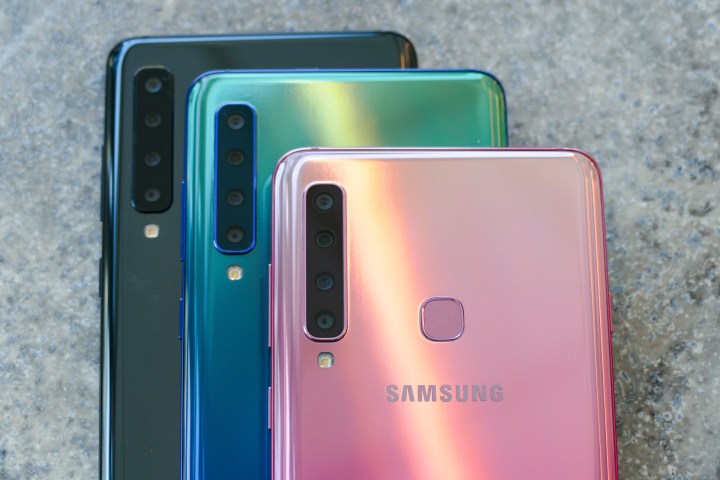
While it feels like it’s been a long time coming, 5G smartphones are arriving sooner than you may think. One day after Samsung announced it will be launching a 5G smartphone on Verizon’s network early next year, both AT&T and Sprint revealed that they, too, will offer the device around the same time.
The 5G smartphone will be the second device to launch on AT&T’s 5G mobile network, following the completion of the first millimeter wave mobile
Following Verizon and AT&T’s announcements, Sprint made sure it was known that the carrier wasn’t being left out. According to PCMag, Sprint’s vice president of product engineering and development, Ryan Sullivan, confirmed to the publication that it is also teaming up with Samsung to launch a 5G smartphone in the first half of 2019. Around that time, the carrier also plans on beginning its mobile 5G rollout in nine markets including New York City, Atlanta, Chicago, Los Angeles, and more.
As for the 5G smartphone, Digital Trends was on the ground at Qualcomm’s Snapdragon Technology Summit this week and caught a glimpse of the concept phone. At the summit, Qualcomm also announced its new Snapdragon 855 processor, with
While there weren’t many details as far as specs go for the 5G smartphone, it’s likely that it will include Samsung’s RAM module that the company announced in July. Known as the LPDDR5 module, it’s the first 10-nanometer-class 8GB RAM out there. Not only will it help to provide battery life by reducing power consumption, but it will also provide greater efficiency. It also brings quicker data transfers to the table that are 1.5 times faster than the chips being used in top-tier smartphones.
While it’s been years in the making, the 5G technology brings its fair share of improvements, including speeds up to 100 times faster than current cellular service, along with reduced latency. It will also bring advances to technology like connected cars, augmented reality, cloud-powered apps, and more.
Once 5G service goes live early next year, those with Samsung
“5G will usher in a new era of mobile connectivity, allowing people to connect to data, experiences, and other people in ways never thought possible,” said Brian Higgins, vice president, wireless device and product marketing at Verizon, in a press release. “Together, Samsung and Verizon have made huge gains in bringing
Verizon originally kicked off its 5G network testing in the United States two years ago and then launched the first home 5G internet service in October — available in Houston, Los Angeles, Indianapolis, and Sacramento, California. Last month, it also made the first 5G video call using a Moto Z3 smartphone that comes equipped with a
Meanwhile, loyal iPhone users might have to wait a while longer for their 5G device. News of Verizon and Samsung’s plans for
Updated December 4, 2018: Sprint confirms plans to offer a 5G smartphone in 2019.
Editors' Recommendations
- Visible’s affordable 5G plans just got even cheaper
- Visible just made its unlimited 5G plan better than ever
- Have T-Mobile? Your 5G service is about to get much faster
- This tiny dongle will change 5G connectivity forever
- T-Mobile just set another 5G speed record


